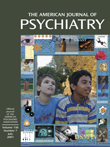Abstract
OBJECTIVE: The authors assessed the long-term consequences of the SCUD missile attack in Israel on children as a function of their mothers’ psychological functioning, family cohesion, and the event itself. METHOD: Five years after the Gulf War, the authors assessed the internalizing, externalizing, stress, and posttraumatic symptoms of 81 children aged 8–10 years whose homes were damaged in the SCUD missile attack, as well as general and posttraumatic symptoms, defensive style, and object relations in their mothers. RESULTS: There was a significant decrease in severity in most symptom domains and an increase in avoidant symptoms in the children. Greater severity of symptoms was associated with being displaced, living in a family with inadequate cohesion, and having a mother with poor psychological functioning. The association between the symptoms of children and mothers was stronger among the younger children. Posttraumatic symptoms increased in one-third of the children and decreased in one-third over the last 30 months of the study. Severe posttraumatic symptoms were reported in 8% of the children. CONCLUSIONS: Despite a continuous decrease in symptom severity, risk factors identified shortly after the Gulf War continued to exert their influence on children 5 years after the traumatic exposure.



